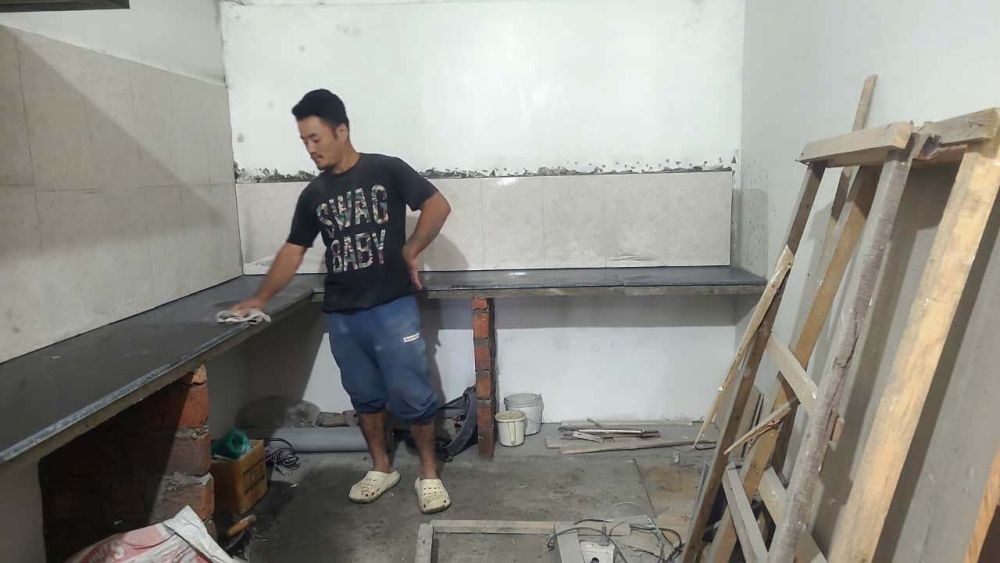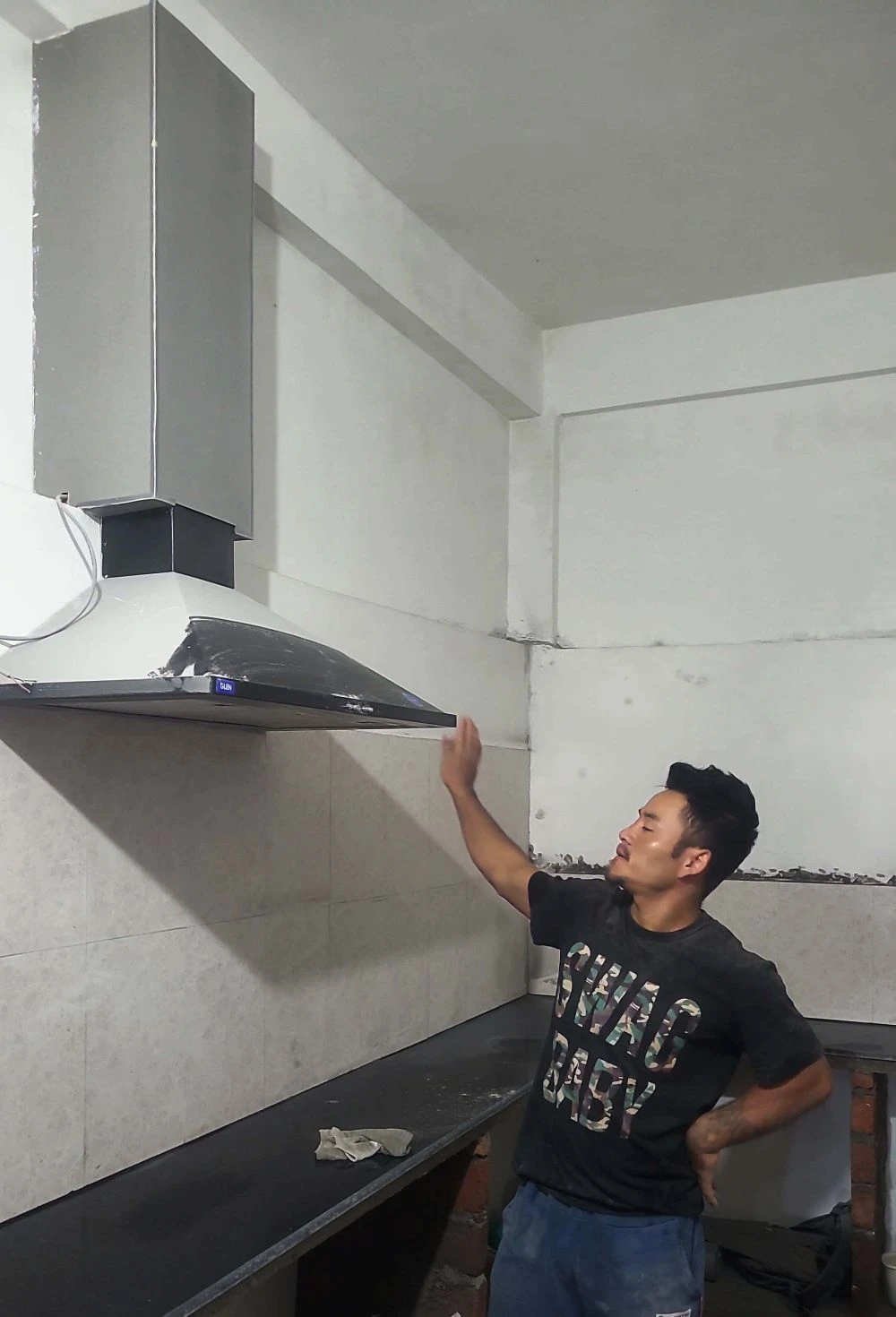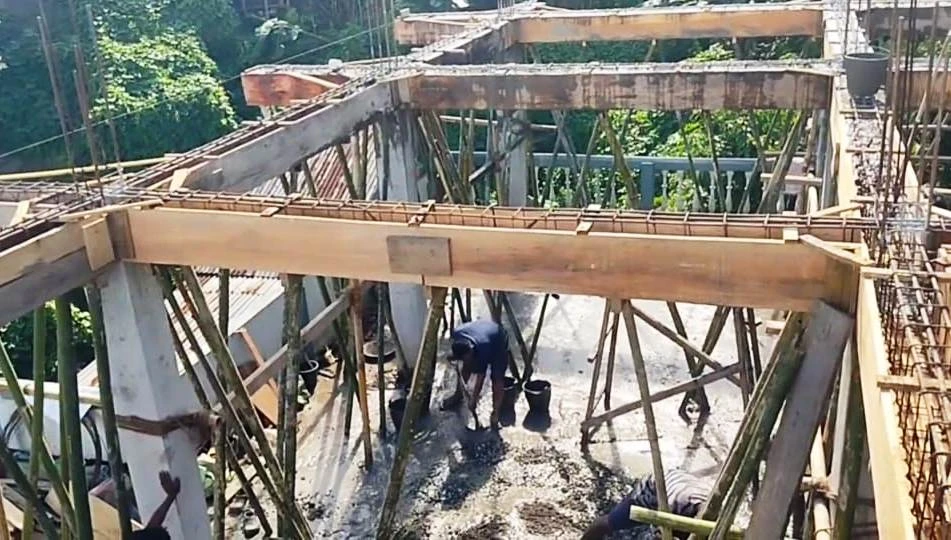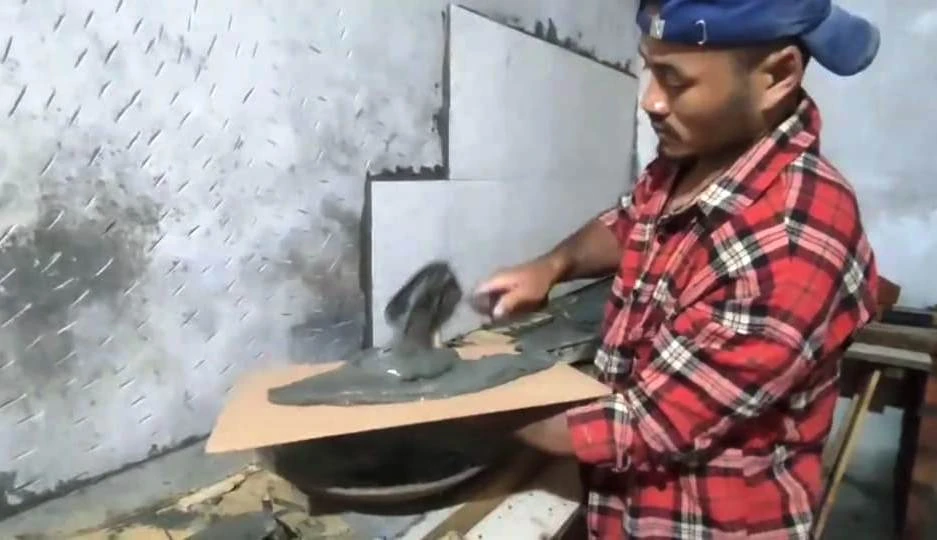Muchivo Vezuh, a construction worker based in Phek town.

Chizokho Vero
Kohima | November 12
From a daily wage of Rs 250 to becoming an employer managing a team of 10, Muchivo Vezuh, a construction worker from Nagaland’s Phek district, exemplifies a journey of dedication and self-taught skill in the building industry.
Hailing from Upper Khomi village, of Phek district, the 32-year-old from the Chakhesang Naga community began his career as a ‘Jukali’ (helper) in 2013-14.
Presently, a resident of Jericho-II Colony in Phek Town, Vezuh studied upto Class VIII.
Vezuh broadly associated with tile fitting, glass fitting, house paint, and concrete building works including furniture making.
Today, Vezuh operates as a ‘Head Mistry.’ To date, he has been associated with the construction of an estimated 70 to 80 such houses in Phek town alone, with several other projects in the Kohima and Dimapur districts.
Detailing his professional journey, Vezuh stated that his initial daily wage was Rs 250 during the 2013-14 period. “Today, I get a daily wage of Rs 1000,” he said, adding, “I am quite satisfied with my job.”
He approaches his craft with full-time dedication. “We work for 8 to 9 hours daily,” Vezuh said. “I have taken this job as a full-time profession to sustain my livelihood.”
Vezuh is married to Rhutsolu Vezuh, who works as a teacher in a private school in Phek town. The couple is blessed with three children. Their twin sons are studying in Class 4 at Christian Mission Higher Secondary School in Phek town, while their younger daughter attends a Montessori school in the same town.
Vezuh said he prefers working on private projects over government contracts, citing timely payments as the primary reason rather than higher wages.
He expressed his disillusionment with government projects, stating that payment delays were a major issue.

“I did a couple of retaining wall works in government projects but I felt disheartened as I faced payment delays,” Vezuh said.
Following these experiences, he decided to focus less on seeking government contracts.
“As daily wageworker, working with private parties offer certain advantages as payment is quick and question of pending bills does not arise,” he explained.
Despite having no formal training from any private or government institution, Vezuh has advocated for professionalism and dedication in the construction trade.
Vezuh, who recently served as a resource person for a masonry training programme organised by the Industrial Training Institute (ITI) Phek, encouraged youth to take up masonry work.
He stated that as long as a person is healthy and has the zeal to work, there is a significant demand for labour in the sector.
“Construction workers must be dedicated and approach their job with professionalism,” Vezuh said.
“We should not take our work lightly. We are important contributors to asset creation,” he added.
Vezuh also underlined the need for staying connected with the modern construction industry, viewing that workers must upgrade their skills to align with the increasing use of technology.
“I normally receives job offer verbally over the phone,” he said. “By God grace, people like my work. So far, there is no complaint about the inferior quality on my job,” he claimed.
Vezuh has appealed to the government to provide safety kits to workers, even as he admitted to not using them himself.
“So far, by God’s grace, I have not suffered any accidental injury while working on the job,” Vezuh said.

When asked about his use of standard construction safety equipment, he simply said, “No.”
He, however, emphasised the need for such gear, adding, “It will be good if the government could provide construction safety kits to us.”
Vezuh has stated that he is not registered with the Labour department or the Nagaland Building and Other Construction Workers’ Welfare Board (NBOCWWB), despite the board offering multiple welfare schemes.
When asked if he had registered to access welfare packages, Vezuh told this reporter, “No.”
NBOCWWB provides social security to the Building and other Construction workers and their families by implementing different welfare schemes specially designed for the purpose. The schemes in includes life insurance, loss of earning compensation scheme, educational scholarship, tool grant and maternity benefit for women beneficiaries.
Vezuh expressed his intention to approach the concerned department to avail the benefits in the future.
He stated his wish to continue in his construction job. “I wish to continue to involve in this job as long as I am healthy.”
However, he acknowledged the physical demands of the work, adding “construction workers are required to be physically fit to work and handle equipment, I will not be able to engage in the construction work when I become aged.”
Therefore, he said he wish to take up a business venture later in life to generate income and sustain his family.
(This is the third report of the four-part series highlighting the experiences and challenges faced by the construction industry in Nagaland as part of the KPC-NBOCWWB Media Fellowship 2025).








